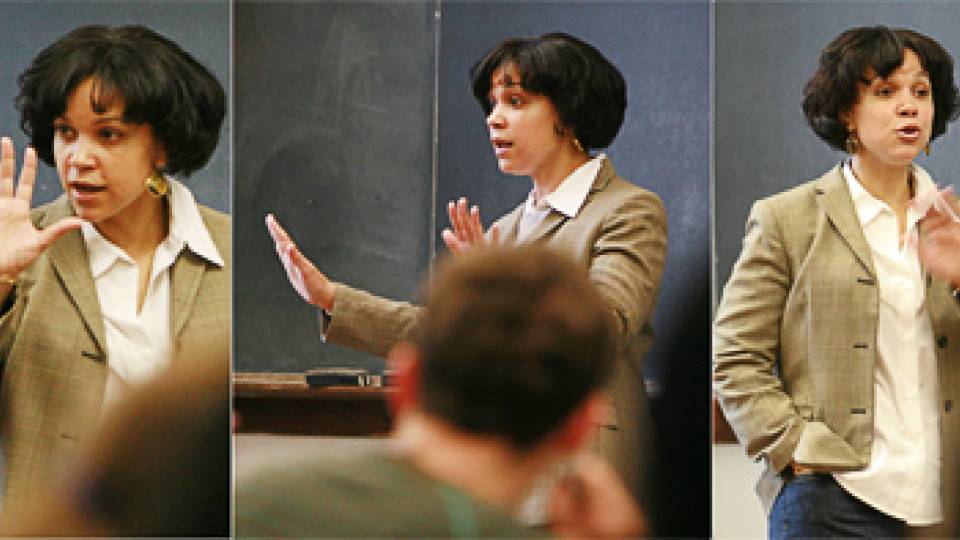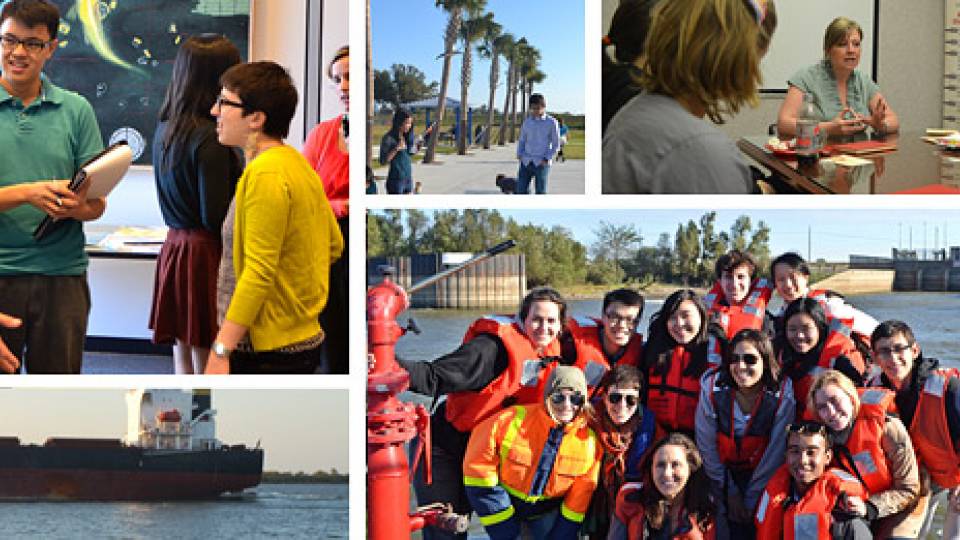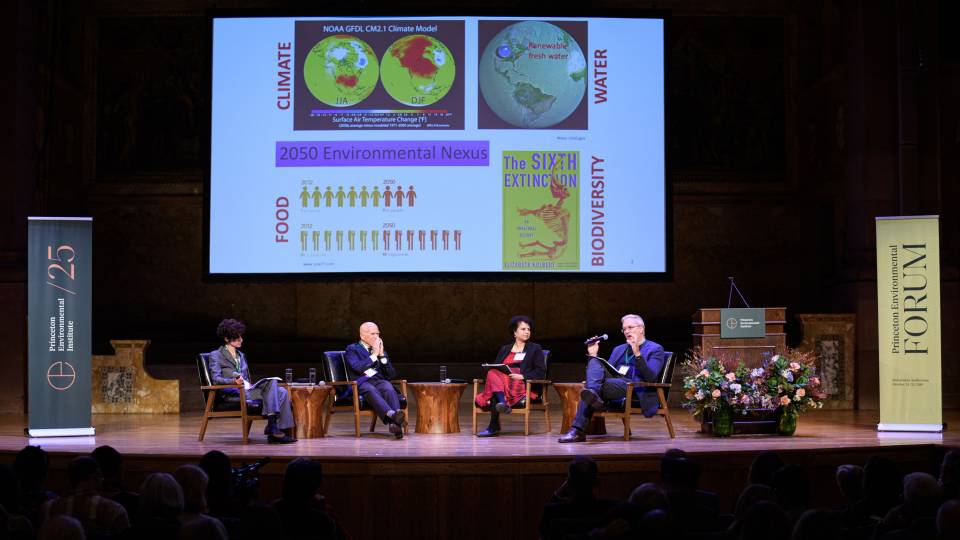A conference on environmental justice scheduled for Monday and Tuesday, April 28-29, will cap a yearlong collaboration between the Princeton Environmental Institute (PEI) and the Center for African American Studies that has enabled Princeton students and scholars to thoroughly explore the topic.
The conference, "A Different Shade of Green: Race, Place and Environmental Justice," is scheduled for 4:30 to 6 p.m. April 28 in McCosh 50 and 8 a.m. to 5 p.m. April 29 in the Frist Campus Center Multipurpose Rooms.
Stephen Pacala, director of PEI, said, "Our conference is the culmination of a yearlong effort to investigate the many facets of environmental justice -- the history, the policy and how community-based science influences the outcomes." Valerie Smith, director of the Center for African American Studies, added that the collaboration with PEI has explored "the intersection of social justice and environmental stewardship, both pressing issues for the 21st century.”
The conference will begin with a keynote address by environmental sociologist Dorceta Taylor of the University of Michigan titled "Environmental Justice Is Not New -- Just Ask Harriet Tubman and W.E.B. Du Bois: Using History as a Mechanism to Understand Environmental Justice Activism." A question-and-answer session will follow, moderated by Kim Smith, a political scientist at Carleton College who has been a visiting professor at Princeton this year hosted by PEI and African American studies.
Sociologist Beverly Wright, director of the Deep South Center for Environmental Justice at Dillard University in New Orleans, will kick off the second day with a talk on "Race, Place and the Environment in the Aftermath of Katrina." Dale Jamieson, a professor of environmental studies at New York University, will speak on "Global Warming and the Ethics of Climate Change" at 12:15 p.m. The event also will include panel discussions with scholars and environmental justice advocates from around the country on various issues facing the environment.
The conference is open to the public, but registration is recommended. For more information and to register, visit the conference website. It is cosponsored by the University Center for Human Values, the Program in Science, Technology and Environmental Policy, the Woodrow Wilson School of Public and International Affairs, the Pace Center and the Office of Religious Life.
The collaboration between PEI and African American studies produced many initiatives and activities focused on environmental justice during this academic year: a public lecture by Majora Carter, founder of the community organization Sustainable South Bronx; an environmental justice film series; faculty forums; and several field trips, including a service trip to New Orleans over spring break led by Melissa Harris-Lacewell, associate professor of politics and African American studies.
Harris-Lacewell and visiting professor Kim Smith also co-taught a seminar on environmental justice this spring. Smith, whose research interests include environmental politics and policy, said she came to Princeton to "stir things up."
"This joint position with PEI and the Center for African American Studies was a great opportunity to be part of an exciting interdisciplinary collaboration, and to explore in more depth the intersections between racial politics and environmental policy. But in my experience, the best visiting faculty leave their mark on the campus -- by starting new conversations, mobilizing students in new ways, and creating new connections within the campus community and between the campus and the broader community. I wanted to be one of those kind of visitors," she said.
Smith added that she was impressed by the level of interest in environmental justice among Princeton students and scholars.
"I was pleased to discover that Princeton students are already very active in environmental causes, and they had a strong desire to learn more about environmental justice. All I had to do was introduce a few of them to some environmental justice activists, and things started to happen. They're already planning next year's environmental justice activities, and I expect student interest in this subject to remain strong. Princeton students really are fantastically committed to public service, and environmental justice offers a myriad of opportunities for meaningful engagement," she said. "There are also many faculty doing work related to environmental justice (although they may not call it by that name), and a few who are already explicitly incorporating this topic into their courses. I hope that the rising level of student interest will support that trend as well."


